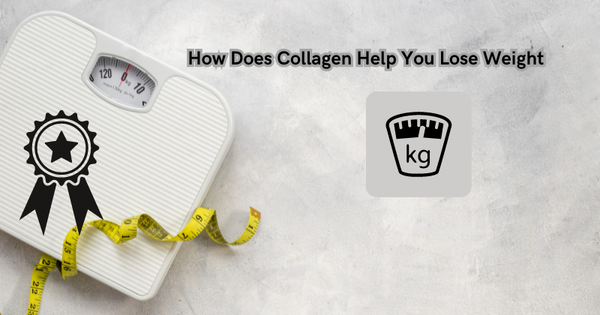Collagen, the protein responsible for maintaining skin elasticity and strength, has gained widespread attention for its potential health and beauty benefits.
However, as with any supplement or protein intake, the question arises: how much collagen is too much? While collagen supplementation is generally considered safe and beneficial, it's important to understand the optimal dosage for individual needs.
Excessive collagen intake may lead to unwanted side effects and potentially negate its intended benefits. Therefore, it's crucial to explore the fine balance between reaping the advantages of collagen and avoiding over consumption.
Let's delve into the nuanced considerations surrounding the consumption of collagen for overall well-being and vibrant skin health.
What Is Collagen?
Collagen is the most abundant protein in our bodies and is found in our skin, bones, muscles, tendons, and ligaments. It provides structure and support to these tissues, giving them strength and elasticity.
Regarding skincare, collagen is responsible for maintaining youthful-looking skin by keeping it firm and plump. As we age, our body's collagen production decreases, leading to visible signs of aging, such as wrinkles and sagging skin.
Connective tissues, including joints and bones, also benefit from collagen's structural support. Amino acids, the building blocks of protein, make up collagen and provide essential nutrients for tissue repair and growth.
Collagen supplementation has become increasingly popular in recent years, promising to preserve youthful-looking skin and boost overall health. However, it's important to note that collagen is not a complete protein and should not be relied upon as a substitute for a balanced diet.
Collagen Supplements
Collagen supplements come in various forms, including powders, pills, and drinks.
Pill or gummy supplement forms tend to contain a higher collagen concentration, while powders and drinks may have added ingredients such as vitamins and minerals.
They are made of animal sources such as cows, pigs, or fish. Some collagen supplements contain other ingredients, such as vitamins, minerals, and antioxidants.
The recommended collagen supplementation dosage varies depending on age, weight, and individual health goals. Generally, daily doses range from 2.5 to 15 grams of collagen daily. Moreover, many experts recommend starting with a lower dose and gradually increasing it if necessary. Collagen supplement labels typically suggest 2-3 servings daily, either with or without meals.
Decreased collagen production is a natural part of the aging process, and supplementation can help replenish the body's collagen levels. However, as with any supplement or protein intake, consuming too much collagen can have adverse effects.
The Different Types of Collagen
Multiple types of collagen are found in the human body, with each type playing a specific role in maintaining overall health and wellness. The most common types of collagen used for supplementation are Types I, II, and III.
- Type I Collagen: This is the most abundant form of collagen in our bodies and is primarily responsible for skin, bones, tendons, and ligaments.
- Type II Collagen: This type is mostly found in cartilage and is beneficial for joint health and mobility.
- Type III Collagen: This type works alongside Type I collagen to support skin health, particularly in the early stages of wound healing.
Most collagen supplements contain Type I and III collagen, while others may also include Type II for joint support.
How Much Collagen is Too Much?
While collagen supplementation is generally considered safe, it's essential to be mindful of how much you are consuming.
According to a study published in the Journal of Cosmetic Dermatology, it was found that oral intake of up to 2.5 grams per day of hydrolyzed collagen peptides does not result in any adverse effects. However, doses higher than this may lead to gastrointestinal discomfort, such as bloating and diarrhea.
Additionally, it's important to note that collagen is a protein, and consuming too much of it can strain the liver and kidneys.
Therefore, following recommended daily doses and consult with a healthcare professional before significantly increasing your intake is crucial. Take too much collagen, and you may experience unwanted side effects such as an upset stomach or skin irritation.
Moreover, collagen supplementation should not be used as a substitute for a healthy and balanced diet. Protein intake from whole foods is always preferred over supplements, so be mindful of your overall protein consumption.
Health Benefits of Collagen
Now that we've explored the potential risks of excessive collagen intake, let's focus on its benefits when taken in moderation.
- Skin Health: As mentioned earlier, collagen keeps our skin firm and plump. Studies have shown that supplementing with collagen can improve skin elasticity, hydration, and overall appearance.
- Joint and Bone Health: Collagen plays a crucial role in maintaining the structure of our bones, joints, and muscles. Supplementation has been shown to improve joint mobility and reduce pain associated with osteoarthritis.
- Muscle Mass: Collagen is an essential nutrient for muscle growth and repair. While collagen supplements may not directly increase muscle mass, they can support muscle health and recovery.
- Gut Health: Collagen has been linked to improving gut health by supporting the lining of the digestive tract. It may also help with leaky gut syndrome and inflammatory bowel disease. Healthy collagen production can also contribute to better nutrient absorption and digestion.
Promote healthy collagen production by consuming a balanced protein, Vitamin C diet, and other essential nutrients.
Why You Should Supplement With Collagen Peptides
Collagen peptides, or hydrolyzed collagen, are broken down into smaller particles to make them more easily absorbed by the body.
This supplementation is believed to be more effective than regular collagen supplements. Nine essential amino acids make up collagen peptides, making it a great source of protein and other vital nutrients.
Moreover, collagen peptides have many benefits and can help improve skin health, joint mobility, gut health, and muscle growth.
Connective tissue, such as tendons and ligaments, also benefit from the structural support of collagen peptides. They are also flavorless and odorless, making them easy to incorporate into your daily routine.
Prevention Tips for Maintaining Healthy Collagen Levels
While collagen supplementation can provide many benefits, it's equally important to take preventative measures to maintain healthy collagen levels. Here are a few tips to help keep your collagen production at its best:
- Avoid excessive sun exposure, and always use sunscreen when outdoors.
- Quit smoking as it can damage collagen and contribute to premature aging of the skin.
- Incorporate collagen-rich foods, such as bone broth and wild-caught fish, into your diet.
- Limit sugar consumption as it can have detrimental effects on collagen production.
- Stay hydrated to promote healthy skin and prevent wrinkles.
- Exercise regularly to maintain muscle mass and joint health.
With the right combination of collagen supplementation and a healthy lifestyle, you can support your body's natural production of this essential protein. Consult with a healthcare professional to determine the best collagen supplementation plan for your needs and goals.
FAQs
What are the symptoms of too much collagen?
Consuming excessive amounts of collagen can cause gastrointestinal discomfort, such as bloating and diarrhea. It may also put a strain on the liver and kidneys. Other symptoms may include an upset stomach or skin irritation.
Is it safe to take collagen supplements?
Collagen supplementation is generally considered safe when taken in recommended doses. However, it's always best to consult a healthcare professional before significantly increasing your intake.
What foods are high in collagen?
Collagen-rich foods include bone broth, wild-caught fish, grass-fed meat, and collagen peptides. Including these foods in your diet can provide additional health benefits alongside supplementation.
Are eggs high in collagen?
Eggs are not a significant collagen source, but they contain some collagen-building nutrients such as Vitamin C and amino acids. Additionally, the eggshell membrane has been shown to have potential benefits for skin health. However, consuming eggs alone is insufficient to significantly increase the body's collagen levels.
Conclusion
Consuming collagen in moderation can offer various health benefits, including improved skin elasticity and joint health. However, like many nutrients, it's important to maintain a balanced approach.
While there is no definitive guideline on "too much" collagen intake, excessive consumption may lead to potential side effects such as digestive discomfort or interference with nutrient absorption.
Therefore, it's crucial to consult with a healthcare professional or nutritionist to determine the appropriate amount of collagen for individual needs.
By prioritizing a diverse and balanced diet, individuals can optimize their overall health and well-being while leveraging the potential benefits of collagen supplementation.
Remember, moderation and personalized guidance are key when incorporating any new supplement into your routine.





